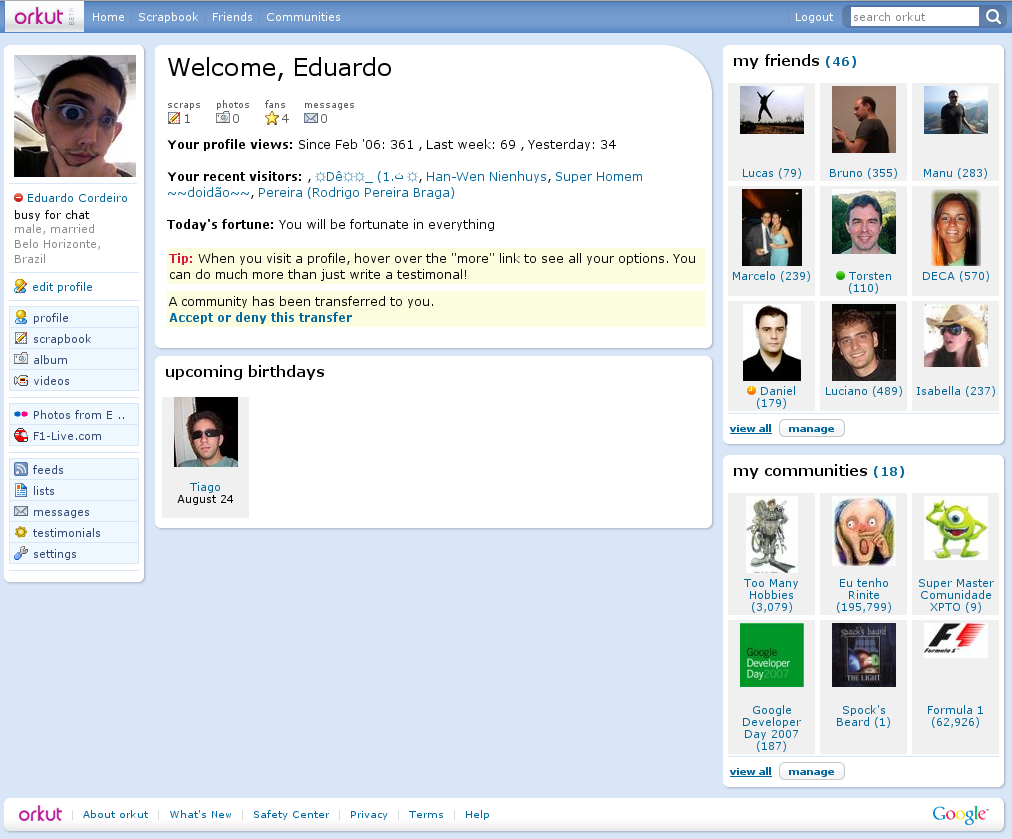Four million Brazilians bid farewell to Orkut

On Tuesday, Google will close down its Orkut platform, which for many years was the most popular social networking service in countries such as Brazil and India.

Launched in 2004, Orkut had more than 30 million Brazilian users at its peak in 2011 — almost half the country's population with access to the Internet at the time, according to research firm Ibope. The platform's user base has dramatically shrunk since, but comScore numbers from June 2014 suggest that about 4 million Brazilians still accessed the service.
In India, Orkut's second largest market, the social network had 13 million unique visitors at one point.
Going forward, Google will deactivate all user accounts for the service and will turn Orkut into an online museum that pays tribute to the tool, which concentrated most of the early social networking activity in Brazil and staged other noteworthy events in the Internet history of the country, such as digital inclusion.
According to Google, the online gallery will effectively be a "time capsule" that refers to the social web of the start of the noughties and will focus on the content of more than 50 million user-generated communities about a myriad of subjects that encompass more than 1 billion interactions.
From Tuesday, will not be possible to post to Orkut's existing forums and topic authors will be identified by name only without links to profiles, according to newspaper O Estado de São Paulo, who got access to how the memorial-like website will look like.
Read this
Orkut users are able to create a copy of their profiles, scrap notes, photos and public messages sent by friends through backup service Google Takeout until September 2016.
Orkut's decrease in popularity was caused by factors such as the introduction of Google+ in 2011 and the entry of Facebook in the Brazilian market that same year.
According to a study by Experian Hitwise, Orkut had 50.51 percent of all visits to social networking websites in Brazil in April 2011, but that percentage collapsed to 2.2 percent in the same month in 2013. Meanwhile, Facebook reached 66.5 percent of all user visits to social networking services within that period of time.
Currently, 89 million people out of 107.7 million Brazilians with access to the Internet are active Facebook users, according to numbers released last month by consulting firm eMarketer.